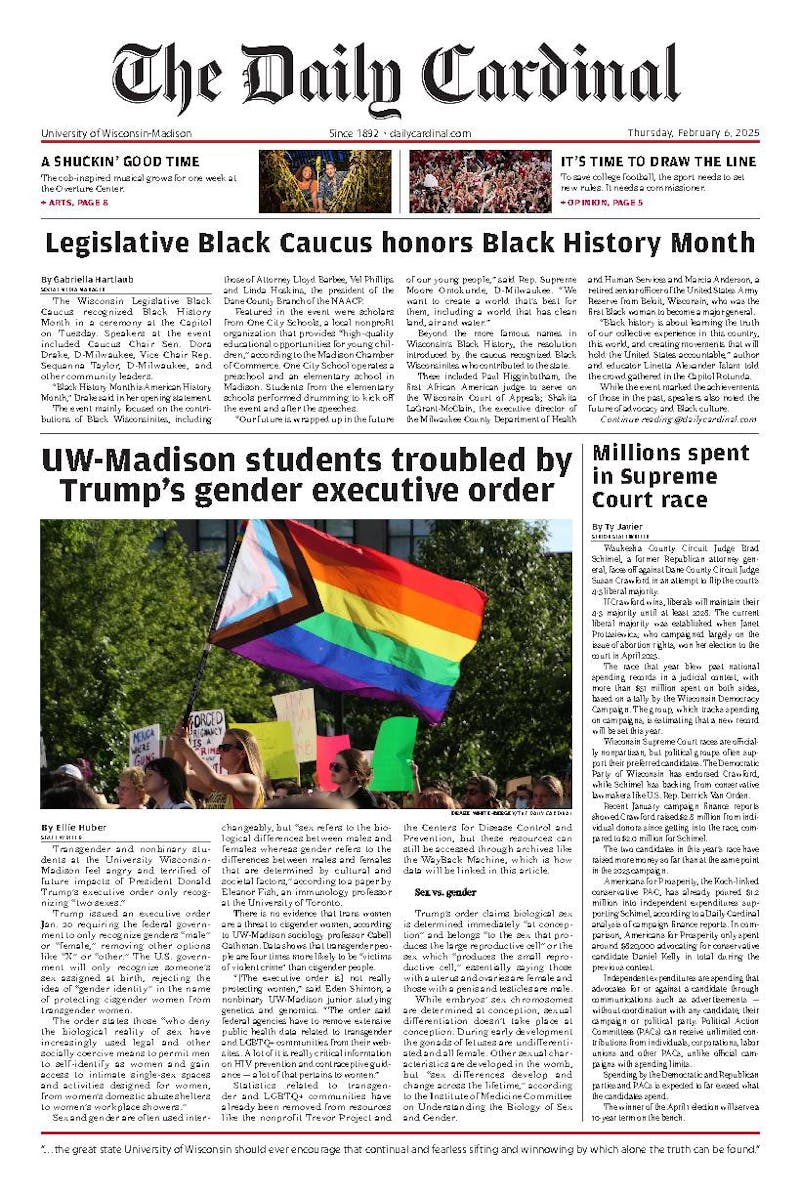The 1980s Civil War miniseries \North and South"" is replaying in California with Hollywood taking on Silicon Valley. The battle lines are being drawn around piracy, copyright and technology that will ultimately decide if you will be able to copy music from your CD to your MP3 player, or access library materials from your personal computer.
The Consumer Broadband and Digital Television Promotion Act, introduced by Sen. Ernest Hollings, D-S.C., and chair of the Commerce Committee would force technology companies to embed copy protection into all digital devices, including MP3 players, cell phones, fax machines, digital cameras and personal computers.
Any software with the ability to reproduce copyrighted works would not be allowed to be sold in the United States after the regulations take effect, said Declan McCullagh of Wired Magazine. Even programmers who distribute their code for free would be prohibited from releasing newer versions'unless the application included federally approved technology.
According to Siva Vaidhyanathan, a UW-Madison assistant professor of library and information science specializing in copyright and media issues, consumers may have to purchase all new devices like VCRs, DVD players and televisions if this law were passed because new copyright-protected media would not work on old devices.
""It would fundamentally change the way libraries use electronic databases and CD-ROMs,"" Vaidhyanathan said. ""You could no longer have widespread access to materials.""
There would have to be dedicated data stations that would be devoted to one database, versus a flexible and adaptable computer like the one used at the UW library where users access several journal, newspaper and book databases all at once.
""You would have to start paying libraries for access because they would not be able to afford it on their own,"" Vaidhyanathan said.
He admits these nightmare scenarios are based on how the bill stands today with no legislative changes. Even if it passed today, Silicon Valley would have a year to come up with measures to solve copyright problems.
Jack Valenti, president and chief executive officer of the Motion Picture Association of America, says the industry needs protections in order to deliver high-quality entertainment to consumers. He argues that piracy prevents studios from releasing more digital products, something they promised to do when the Digital Millennium Copyright Act passed in 1998.
The MPAA estimates that it loses a potential $3 billion per year to unauthorized copying, and the Recording Industry Association of America estimates its annual piracy losses at $4.5 billion. Valenti says these numbers will only grow, severely cutting into Hollywood revenue. He made a similar argument in the late 1970s and early 1980s to outlaw VCRs'before videocassette sales dwarfed box-office receipts.
Lagging record sales may be contributing to the entertainment industry's attitude. The Los Angeles Times reported that sales of music CDs have dropped around 10 percent. British music giant EMI Group announced plans to cut about 20 percent of its music force and release 400 of its 1,500 artists. Critics say entertainment companies would be able to make money from digital media if they started offering it to consumers in the way consumers want it.
Record companies are trying out several technologies to protect their CDs. The movie soundtrack ""More Fast and Furious,"" released by Universal Music Group last year, was among the first CDs released in the United States to employ such technology. The company plans to have most of their CDs protected by the end of the year.
Companies are also working to produce copy-protection chips that would have the power to shut down specific functions in a DVD player, CD player or VCR. Such a chip would be able to cut off direct digital output from a device. Content producers will tag the content with permissions to copy it once, always or never. TV receivers or set-top boxes will read these flags and comply. Media players in a personal computer could also be set to read similar flags, both for audio and for video.
Companies are also looking at watermarking, which would put a digital label in a song, TV show or movie that distinguishes the original from a copy. VCRs, CD and DVD players would only play the watermarked materials.
Pat McCurdy, a local artist who doesn't mind and even encourages fans to download and copy his music, admits he loses money in the process. He says to produce the least expensive type of CD, a recording of a live performance, costs him close to $10,000. The money goes toward sound, artwork and production costs. Despite this, McCurdy allowing fans to pass on and copy his music gets more people interested in his work and encourages them to attend his concerts.
Several consumer groups are complaining that the CBDTPA, along with the DMCA, are too broad and intrusive. The DMCA makes it illegal to try to break through copyright protection software. Several scientists are suing the RIAA over the DMCA because it stopped them from presenting research at a conference. Russian programmer Dmitry Sklyarov was arrested under the provisions of the DMCA last year for writing a program that could break Adobe E-Book security. The charges were later dropped.
Groups like the Electronic Frontier Foundation argue that this law does not allow for fair use and stifle the free flow of information. One group, DigitalConsumer.org, is leading a letter-writing, fax and e-mail campaign.
The task of carrying copyright law into the digital age, and that of making sure it still provides effective protection for artists' work while not stifling creativity and fair use is a monumental one. It won't be over for some time, but concerned artists, consumers, corporations and lawmakers are already at work.





